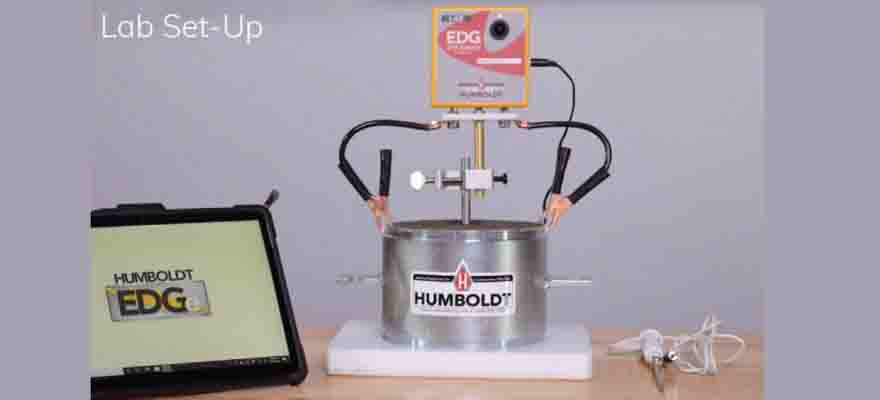Smart Sensors in Field Testing Equipment: Accuracy Like Never Before
The construction and infrastructure industries have always relied on precision when it comes to testing materials and evaluating site conditions. However, the advent of smart sensors has taken this precision to a whole new level. From soil strength and moisture content to concrete durability and pavement performance, smart sensors embedded in field testing equipment are revolutionizing the way engineers collect, analyze, and apply critical data on-site.
In this article, we explore how smart sensors are bringing unmatched accuracy and efficiency to field testing equipment and how this innovation is transforming civil engineering practices.
What Are Smart Sensors?
Smart sensors are advanced components that not only detect and measure physical conditions—such as pressure, temperature, force, or moisture—but also process the data internally before transmitting it wirelessly or via digital interfaces. When integrated into field testing equipment, they provide real-time, accurate, and high-resolution data without manual interpretation, thus reducing human error and enabling data-driven decisions.
1. Concrete Testing: Enhanced Precision with UPV Devices
One of the best examples of smart sensor integration is the Pundit UPV Tester. This ultrasonic pulse velocity device uses highly sensitive transducers to detect flaws such as cracks, voids, and honeycombing in concrete structures. With smart sensors, it now delivers more accurate readings with automated data filtering, Bluetooth connectivity, and real-time data logging.
This enhanced capability is especially crucial for evaluating concrete in critical infrastructures like bridges, dams, and high-rise buildings.
2. Automated Asphalt Compaction Monitoring
Asphalt testing also benefits significantly from smart sensor technology. The Automatic Marshall Compactor now features sensors that monitor compaction force, cycle count, and temperature. These sensors ensure uniform compaction of asphalt samples, which is critical for ensuring road durability.
The result? Highly reliable specimen preparation and precise adherence to international pavement design standards.
3. Shear Strength Testing with Unparalleled Control
The Automatic Direct Shear Test system integrates smart load and displacement sensors to evaluate the shear strength of soil samples under various loads. These sensors record force and movement in microincrements, giving geotechnical engineers an extremely detailed understanding of soil behavior.
This level of detail is essential for designing retaining walls, embankments, and slopes that can withstand real-world stressors.
4. Smart Triaxial Testing for Deep Soil Analysis
The Automatic Triaxial Testing System incorporates pressure and volume sensors that provide automated readings of stress, strain, and pore water pressure. Smart sensors ensure these values are captured with minimal lag and maximum accuracy, allowing engineers to model complex soil behavior.
These advancements are especially useful in projects involving tunnels, foundations, and dams where precise soil response is vital.
5. Monitoring Asphalt Aging with Pressure Sensors
The Pressure Aging Vessel simulates the long-term aging of asphalt binders under controlled conditions. With smart pressure and temperature sensors, it ensures consistent test environments and logs any fluctuation that could affect the outcome.
This data helps engineers predict the durability and performance of asphalt in varying climatic conditions—a major benefit in road construction and smart city development.
6. Foundation Testing with Smart Integrity Tools
Pile testing has come a long way with the use of smart waveform and velocity sensors in the Pile Integrity Tester. These sensors provide real-time data on defects such as voids, cracks, and changes in cross-section within piles.
Paired with Pile Foundation Testing equipment, they allow engineers to verify the safety of deep foundations with unmatched precision—ensuring stability for bridges, towers, and skyscrapers.
7. Soil Testing Accuracy in the Field
The latest Soil Testing Equipment in India includes moisture, pressure, and density sensors that deliver laboratory-grade results on-site. These smart sensors are embedded into tools like penetrometers and moisture meters, making soil assessments faster and more reliable.
Whether it’s testing for compaction or evaluating bearing capacity using the Field CBR, smart sensors eliminate guesswork and ensure accurate analysis every time.
8. Pavement Durability Testing with Real-Time Sensors
The Indirect Tensile Strength of Asphalt test evaluates asphalt’s resistance to cracking under load. Smart load and deformation sensors now record test results in real-time, allowing for dynamic response tracking and advanced creep compliance analysis.
This is essential for highways, airport runways, and industrial pavements where long-term performance is non-negotiable.
9. Crash Barrier Testing Enhanced by Sensor Integration
Crash barriers are vital for roadside safety, and their strength must be accurately validated. With smart sensors integrated into testing rigs, Metal Beam Crash Barrier Supplier and Thrie Beam Crash Barrier Suppliers can offer tested and certified products based on real-time stress and impact readings.
These sensors not only improve testing accuracy but also ensure that installed barriers meet safety standards across different environments.
Advantages of Smart Sensors in Field Testing
✅ Real-time feedback: Get instant results without manual calculations
✅ Higher resolution: Micro-level measurements for deeper insights
✅ Reduced errors: Automated calibration and zero human bias
✅ Remote monitoring: Data can be accessed and analyzed off-site
✅ Data storage: Sensors often sync with cloud platforms for report generation and analysis
Conclusion
The integration of smart sensors into field testing equipment is transforming the future of construction, civil engineering, and infrastructure development. These sensors bring unmatched accuracy, speed, and efficiency—enabling engineers to make informed decisions with confidence.
From high-end tools like the Pundit UPV Tester for concrete analysis to soil testing and Automatic Triaxial Testing Systems for geotechnical evaluation, smart sensors are raising the bar for quality control and performance verification.
Partnering with reliable providers like Avantech ensures that your projects are equipped with the most advanced tools—ensuring accuracy, reliability, and success from the ground up.








